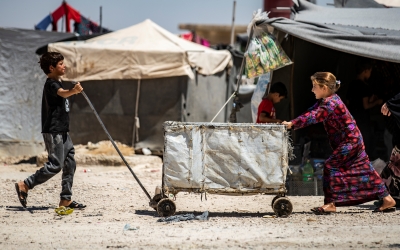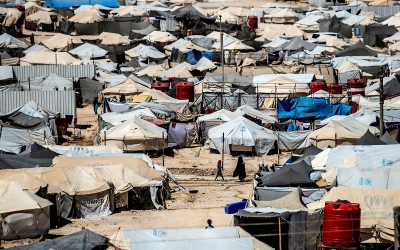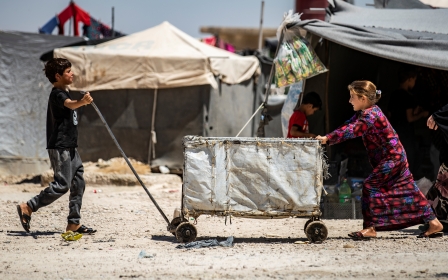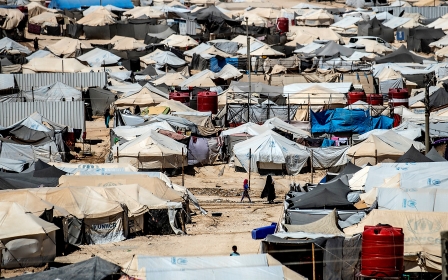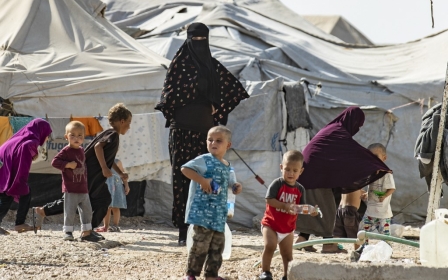Trinidad woman in Syrian camp writes to prime minister pleading to go home
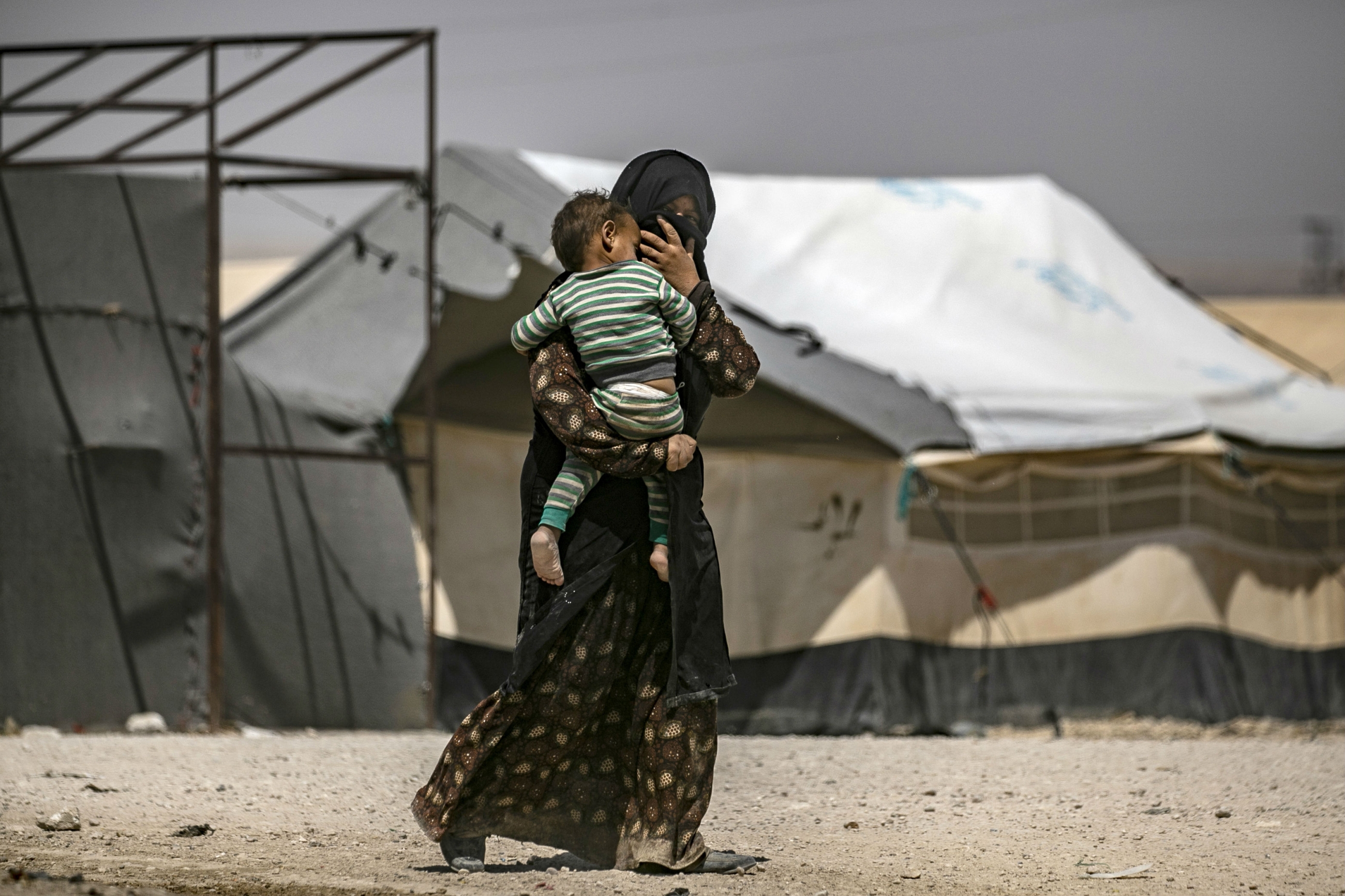
A woman from Trinidad and Tobago stranded at a Kurdish-run camp in northeast Syria has written to the Caribbean nation's prime minister asking to be allowed to return home.
The woman, who has her five children with her at the overcrowded al-Hol camp, called on Keith Rowley to "look deep inside your heart" and allow them back.
Nearly 100 nationals from Trinidad and Tobago - the children and wives of men who are suspected of fighting for Islamic State (IS) - are currently held at the camp.
But despite reports of disease, violence and even deaths at al-Hol, Trinidad and Tobago's government has been reluctant to repatriate them.
Families of those stranded say the government is shirking its responsibilities to its citizens and have taken it to court.
In the letter, which came to light earlier this month, the woman, who did not give her name but said she had bachelor and master degrees, writes: "I am writing to you cause I feel I am left with no other choice.
"Let me get straight to the point, all I am requesting of you is simply to bring my children and myself home along with my other colleagues.
"Mr Rowley you have the power to do anything you wish and you should be God-fearing in the decisions you make.
"As a citizen of Trinidad and Tobago, it makes me liable to all democratic rights whether I am there or not."
'Not what we expected'
The woman arrived at the camp in December 2018 as part of an exodus of people who had fled after the capture of IS territory by a US-backed military campaign spearheaded by the Syrian Democratic Forces (SDF).
The mainly Kurdish-led SDF announced victory over IS in March 2019.
She wrote that she and her husband were "God-fearing Muslims" who had travelled to the region because they wanted their children “to be among Muslims "like ourselves".
But she admits that things did not go as planned.
"Decisions were made by us and the ending was not what we expected but as we know we must pick up the pieces, accept our wrong, and we must move on again trying the best of our abilities to continue a prosperous life ahead," she wrote
"My children have a lot of dreams and aspirations and as their parent, I am responsible for helping them through but this task is almost impossible and not to mention difficult for me if I am left to just sit here and let time pass."
Child deaths
At least 71 of the Trinidadians held at al-Hol are children.
Pictures obtained by MEE last year showed a boy with open, festering flesh on his scalp.
Flies gathered at the mouth of his younger brother in another photo. In an audio recording, one child complained of a stomach upset and said he had contracted chicken pox.
Last month, eight children died from illnesses, including from malnutrition-related complications and dehydration, at the camp.
Also in August, al-Hol reported its first cases of the coronavirus, prompting aid agencies to raise the alarm that the pandemic could spread through the crowded and unsanitary camp, home to nearly 70,000 people.
Echoing those concerns, the woman added: "I want the opportunity to continue with my life and most importantly for my children to continue their lives where they can be in a more stable environment having the convenience of education, healthcare, food, and even clean water."
"If you can look deep inside your heart for just a few minutes, honestly, without any whispers from your mind and just ask yourself what did we do wrong?"
'About time'
Felicia Perkins, a Trinidadian who rescued her two children from the Kurdish camps last year, told MEE that that she "felt proud" that the woman had spoken out, given the abuse some have faced.
"I'm glad to know that she's taken the chance to speak out because I've spoken to women who have been beaten and threatened by the guards at the camps.
"They don't want people to know what is happening."
Perkins, who has liaised with government authorities on behalf of the families of those at the camps, added: "It's about time they [those held in the camp] started to stand up."
Umar Abdullah, leader of the Islamic Front advocacy group, directed his message at the government.
"Bring back those women and children. Please make every effort that will facilitate such a move," he told MEE.
"What's the hold up? Why is the government refusing to allow the return of these women and children?"
The government of Trinidad and Tobago did not respond to requests from MEE for comment.
A lawsuit filed by the families of at least 10 women and children at al-Hol camp against the government of Trinidad and Tobago is set to go to trial in November.
The families say the women and children are vulnerable to exploitation and abuse.
Britain, France and the US are among countries that have repatriated citizens from the camp.
Middle East Eye delivers independent and unrivalled coverage and analysis of the Middle East, North Africa and beyond. To learn more about republishing this content and the associated fees, please fill out this form. More about MEE can be found here.


